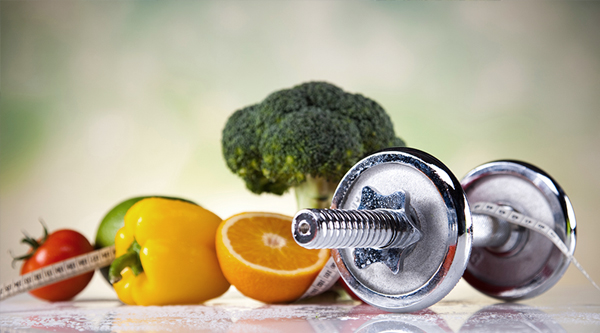How does your metabolism change over time? Can you influence your metabolism through diet? What is metabolism actually? This article will explore these questions.
What is metabolism?
Metabolism is the collection of biological process needed to sustain life. This includes conversion of food into energy or body tissues and the process by which you breakdown drugs and eliminate metabolic wastes.
When talking about nutrition and metabolism, we are generally referring to energy metabolism including the calorie-containing macronutrients you eat (E.g., carbohydrates, protein, and fat). You store and utilize this energy for daily body processes, and for times of increased need such as exercise. This process is dynamic and goes beyond the scope of this article, but together will ultimately determine what is known as your energy expenditure (i.e., how many calories you burn in a day).
Other key determinants of energy expenditure include: Age, sex, genetics, environmental stimuli, hormones, diet composition, body composition, and physical activity.
How do we measure energy metabolism?
There are several ways to measure or estimate energy expenditure. There are predictive equations such as Harris Benedict and Mifflin St. Jeor. There are also technologies that measure directly or indirectly how many calories you burn in given condition, such as heart rate monitoring, calorimetry, and doubly labelled water technique. All of these tools have strengths and weakness in measuring or estimating the caloric contribution of the three variables below, which together make up your daily total energy expenditure:
- Resting metabolic rate (RMR): How many calories you burn at rest. This accounts for between 60-75% of your daily calories burned.
- Thermic effect of food (TEF): The calories burned through chewing, digesting, and absorbing food. This makes up about 10% of calories burned.
- Physical activity: This can be broken down into exercise activity thermogenesis (EAT) and non-exercise activity thermogenesis (NEAT). The combined effect makes up between 15-30% of calories burned.
RMR can be measured at Preventous through indirect calorimetry. Since this variable accounts for most of your overall energy expenditure, we can use this information to better predict your overall calories burned in a day.
Energy metabolism and nutrition in aging
Everybody’s metabolism is a little bit different, and is to a certain degree modifiable through daily lifestyle factors. It changes during stages of life such as pregnancy, menopause, and also when we undergo metabolic adaptations related to imposed conditions such as modifying diet or physical activity.
Throughout the lifespan, our metabolism peaks through adolescence and early adulthood then slows down as you age. This leads to a decrease in the number of calories your body needs. Also, lean muscle mass decreases with age. This explains in part why metabolic needs decrease, because muscle is a highly metabolically active tissue.
Other biological changes occur as you age which impact specific nutrient needs. For example, menopause is associated with an increased risk of developing osteoporosis. This is why calcium requirements increase from 1000mg per day to 1200mg per day in women.
Thyroid function may also change over time. For example, development of an underactive thyroid, an organ that largely controls your body’s energy metabolism through hormonal regulation, can decrease the number of calories you may need in a day. Certain nutrients your thyroid needs, such as iodine and selenium, become especially important to get through diet.
With a decrease in calories needed as we age, and an increase in certain vitamins and minerals, it becomes increasingly important to ensure your diet is rich with nutrient dense foods such as vegetables, fruits, legumes, whole grains, nuts/seeds, calcium-rich foods, and lean proteins.
How else can you optimize your metabolism?
We previously discussed how lean muscle mass declines with age. Incorporating resistance activity and adequate protein for building lean muscle mass is a one way to maintain or increase your RMR.
Also, prolonged, higher-intensity activities induce a phenomenon termed ‘excess post-exercise oxygen consumption’ (EPOC). In other words, your metabolic rate remains elevated after your workout, resulting in the burning of additional calories post exercise. Another great reason to incorporate varied exercise types into your routine.
Daily movement can also assist your metabolism. For example, daily movement improves the sensitivity of the hormone insulin, which in turn helps support nutrient metabolism, keeping blood sugars in check, and mitigating chronic disease risk.
Interestingly, certain types of foods can influence energy expenditure. For example, protein-rich foods require more energy for digestion than fat and simple carbohydrates. Similarly, complex carbohydrates from whole grains, beans and legumes also increase calories burned during digestion, compared to simple or refined carbs.
Beans and legumes also contain plenty of dietary fibre, resistant starch, and prebiotic fibres that are food for your microbiome. These beneficial bacteria in your gut can convert this fuel into short chain fatty acids which help your body use stored fat as energy and maintain blood sugar levels.
Mineral rich foods are also important for a healthy metabolism. For example, selenium and iron are two minerals essential for thyroid function. Deficiencies in these two minerals may slow down the function of your thyroid gland. In fact, hypothyroidism is often associated to anemia. Adding iron to standard medical care (E.g., medication) may improve both conditions.
Caffeine, yes, caffeine from that sweet cup of coffee is considered a ‘thermogenic ingredient’ and may increase your metabolism. Or better, other caffeine-containing beverages, such as green or oolong tea, contain molecules called catechins which together with caffeine may assist in the metabolism of body fat.
Capsaicinoids, a group of bioactive molecules found in chili peppers may increase your energy expenditure. A systematic review of the research indicated a small yet significant role in weight loss. Doses varied between studies, but results collectively suggested an increase of 50 calories burned per day, which could produce significant weight loss after 1-2 years. Not much to write home about, but pretty interesting! The potential mechanisms require further research but could be due to increased energy expenditure, increased calorie burning from fat, or potentially reduced appetite.
Some other foods, such as cacao, ginger, and apple cider vinegar have been purported to assist in boosting metabolism. These studies do require further validation in research, yet they are often advertised as ‘cures’ for weight loss. While they are generally fine ingredients to include, they are far from a magic bullet.
Nutrition research is always evolving, and with a world full of awesome ingredients to choose from, the knowledge base of medicinal and culinary benefits from food will surely expand. For now, a varied, balanced diet using a whole foods approach and some of the strategies above is a flexible and effective way to support overall health, including metabolism.
Final thoughts
There are many ways to assist our metabolism through activity and nutrition. While our metabolism may slow down with age, opportunities to improve your nutrition can increase! Experiment in the kitchen, adapt nutrition strategies to your workout routine, and expand your curiosity and knowledge in nutrition!
If you are interested to learn more about your metabolism and nutrition, book an appointment with me at Preventous today!
Dan Neuman
Registered Dietitian MSc



